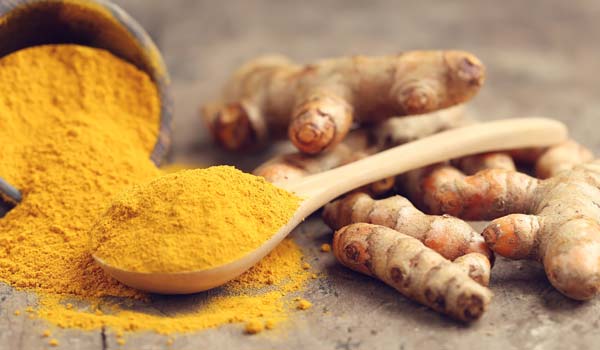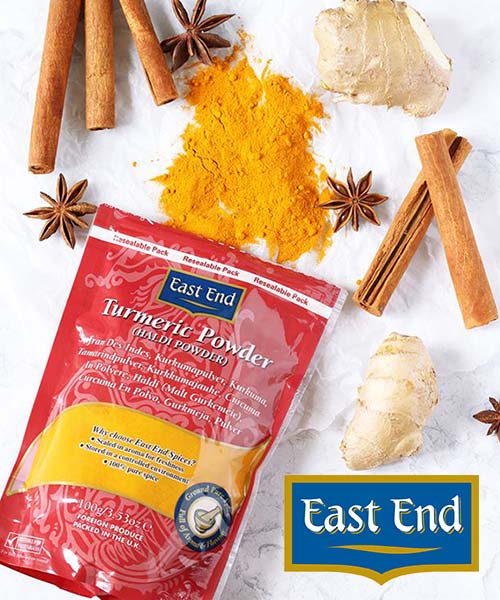Health Benefits of Turmeric and its Medicinal Applications
Though turmeric is a widely used culinary spice, the health benefits of turmeric are lesser known. Traditionally known for its flavoring and coloring ability as a food additive in Indian cuisine, turmeric has also been present in both Chinese and Indian traditional medicinal systems since the ancient times.
Turmeric belongs to the Zingiberaceae flowering plant family, which is a wider group that encompasses ginger, galangal and the related species. It is a rhizome of which the edible roots are grown underground. The botanical name of turmeric is ‘Curcuma longa’. Turmeric gets its botanical name from its basic chemical content ‘curcumin’ which gives turmeric the yellow colour pigment(E100). Moreover, curcumin is one of the primary components which act as the basis for the health benefits of turmeric.
Being present in both East Asian and South Asian traditional medicinal systems, turmeric is known in various names across Asia. In China, it is known by the name ‘huángjiāng’, which means ‘yellow ginger’. In Indian Ayurveda, turmeric is widely used in a range of traditional medicines where it is called ‘haridra’, which is a Sanskrit-influenced term. In the Hindi language, ‘haldi’ is the name for turmeric although many South Indian languages use different names to denote turmeric, for instance, ‘manjal’ in Malayalam and Tamil languages.
In the below passage, a few health benefits of turmeric are listed out and are tried to explain one step further.

Turmeric is Anti-inflammatory
The health benefits of turmeric depend on the chemical content called ‘curcumin’ which is classified as a secondary metabolite. Metabolites are known for its ability to act as anti-inflammatory aids. So adding turmeric to food can help cure inflammation, which subsequently prevents health conditions like metabolic syndrome, chronic kidney disease and heart syndromes to a certain extent. The reason why researchers point out turmeric as a preventive measure against cancer might be that curcumin can fight the root causes of many such illnesses.
Turmeric is a Source of Dietary Minerals
The health benefits of turmeric depend mostly on the nutrients including carbohydrates, protein and dietary minerals.
In 100g turmeric, 65g carbohydrate exists of which 21g constitutes dietary fibre. Turmeric is a rich source of Vitamin C, Vitamin K, and essential vitamins like choline, which helps metabolism, and folate, which is essential for cell growth and reproduction. Potassium, Magnesium, Phosphorous, Iron and Calcium are among the minerals contained in turmeric.
Being rich in dietary fibre, turmeric is greatly beneficial for a healthy digestive system. Turmeric can smoothen the muscular movements of intestines which help prevent digestive gas and bloating.
Turmeric is an Effective Measure Against Several Clinical Conditions
A remarkable health benefit of turmeric comes in the form of a remedy which is used against several clinical conditions. In summer seasons, some people may experience a condition called hay fever, especially in European countries. Sneezing, itching, runny nose, and congestion are the results of hay fever. Turmeric’s curcumin content seems to reduce the symptoms of hay fever.
Another health benefit of curcumin is in the form of antidepressant. Adding turmeric to your diet can help reduce symptoms of depression. Besides, curcumin can fight liver diseases, which are not alcohol-borne. Also, the use of turmeric has been found effective against high cholesterol, Osteoarthritis, Premenstrual syndrome, itching, and inflammatory bowel diseases like ulcerative colitis.
Immunity Boosting Turmeric Tea
Some studies have pointed out that turmeric has the capacity to enhance one’s immune system as the chemical component curcumin possesses anti-inflammatory properties. Apart from this, turmeric’s anti-microbial and antioxidant abilities help boost the immune system.
Indian traditional medicinal system Ayurveda has used a special turmeric tea to help it better absorbed into the blood. As turmeric is difficult to be absorbed directly to the bloodstream, adding turmeric to black pepper and drinking the mixture makes better curcumin absorption to the blood possible. According to this method, an Ayurvedic turmeric tea can be made of boiling water mixed to turmeric, black pepper and ginger.

Turmeric can Promote Hair Growth and Protect Skin
Turmeric has surprising health benefits on skin and hair. It can reduce hair loss and promote hair growth with the antioxidant, antimicrobial and anti-inflammatory properties. As per a study, what causes hair loss is the presence of a hormone called dihydrotestosterone (DHT). The overproduction of DHT can be inhibited by curcumin resulting in the promotion of hair growth. Turmeric’s polyphenols can counteract against free radical damage that causes scalp issues and hair loss. You can either add turmeric to your diet or apply on your scalp to reduce hair loss.
In addition to this, turmeric can act as a face mask in beauty treatments. According to Ayurveda, a mixture made of turmeric, gram flour, sandal, lemon juice and milk has wonderful health benefits on skin and face.
Turmeric in Cooking
In Indian cooking, turmeric is one of the most essential ingredients in curry recipes. Turmeric is usually added at the beginning of the making of a curry dish while sautéing the vegetables. It is routinely added to meat curry dishes like chicken, lamb, beef, and fish curry dishes. Apart from this, turmeric can be used as a marinade ingredient for meat and fish dry fry recipes. You can find ground turmeric powder here, customized for Indian curries.
Apart from Indian cuisines, turmeric is used in a Moroccan soup and used by the Iranians to make a delicious spice mix. Besides, turmeric is used in American dishes prominently as a colouring agent. Turmeric is added to yellow saffron rice in the Caribbean style for coloring purpose. It is generously added to egg scrambles, and frittatas, soups, smoothies, roasted vegetables, teas for its pungent flavor and earthy aroma.
Plenty of such applications can be pointed out regarding the use of turmeric both in cooking and in traditional herbal medicine. Listing all of them will be a Himalayan task since the scope of turmeric as a fundamental spice is so vast and there are increasingly more studies have been conducted regarding the use of turmeric and curcumin. It is doubtless to say that turmeric is beneficial to the health of human beings and its application in cooking can in no way overlooked.





